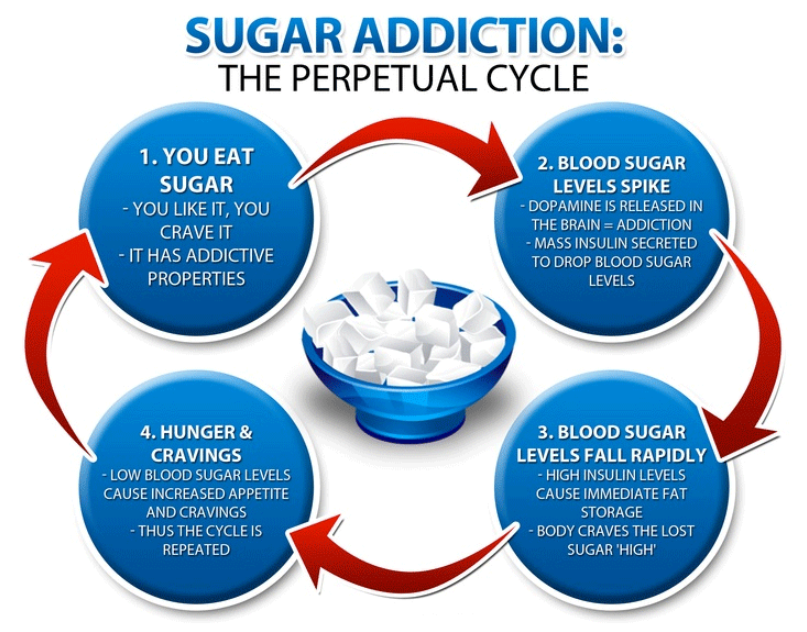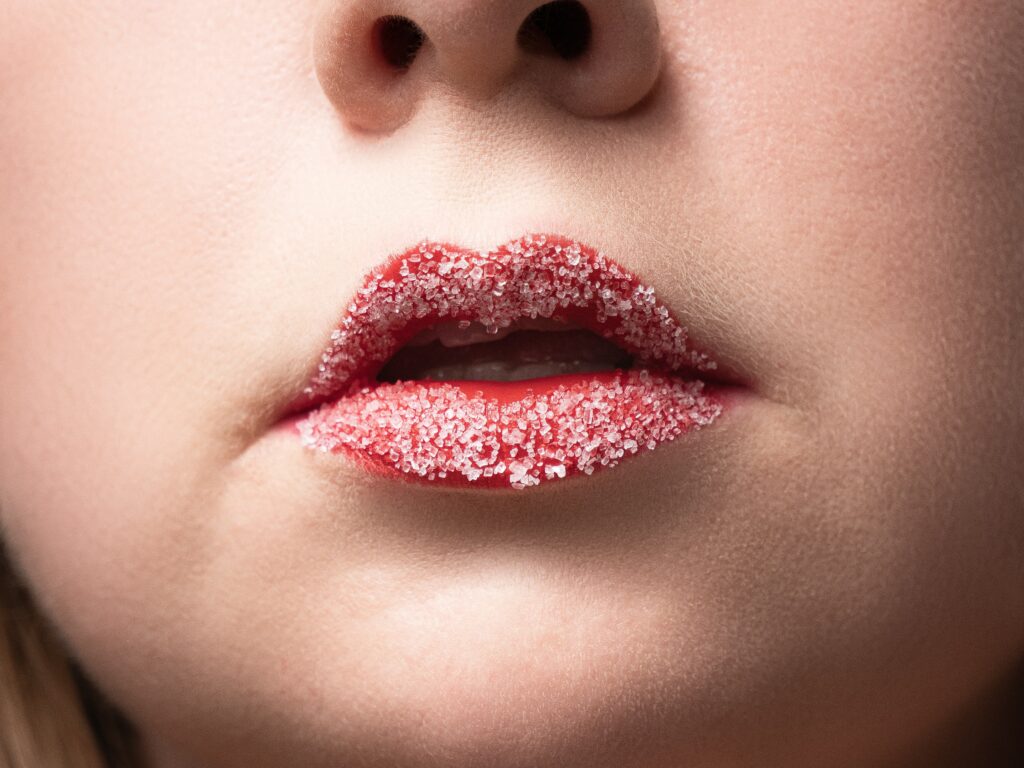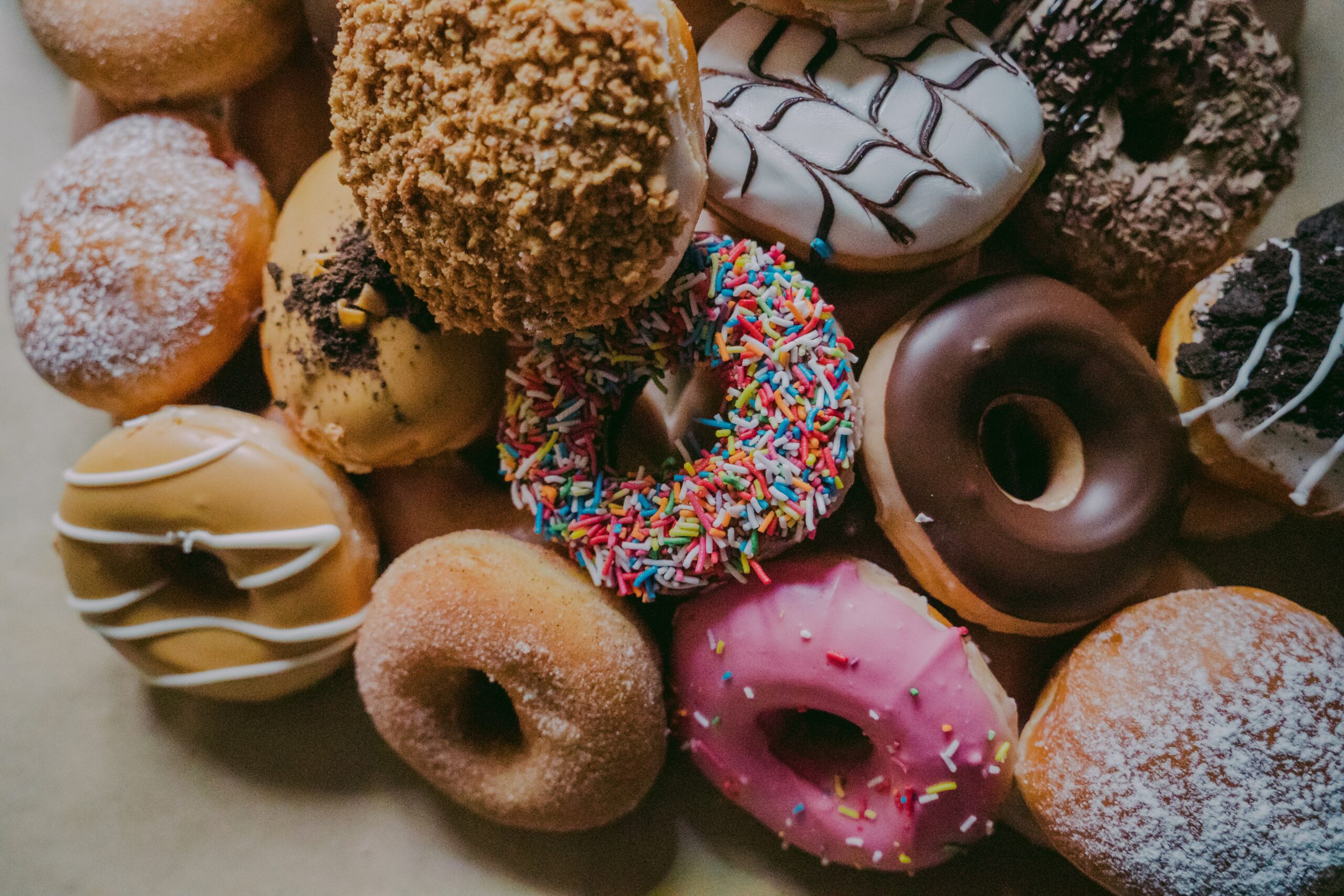Indulging in ice cream, chocolate, candy, or cookies can be tempting when we crave sugar. However, what are the consequences of succumbing to those cravings on our well-being?
Surprisingly, sugar addiction is a genuine health issue that affects more individuals than we might think.
What exactly is sugar addiction?

The term “sugar addiction” may sound exaggerated since it implies that we can be hooked on donuts and cake. Unfortunately, this misconception can prevent people from acknowledging it as a real concern. Sugar addiction is a genuine issue that can result in serious health problems, as we will discuss below.
The process of sugar addiction is comparable to other substance addictions, consuming excessive sugar over a prolonged period can modify our brain chemistry. When we consume sugar, our body releases dopamine, a neurotransmitter that activates the reward system and generates pleasure. (Yum, desserts!).
As we consume more sugar, our brain adapts to constant dopamine stimulation and requires more to experience the same pleasure. As a result, we need to consume more sugar to achieve the same level of enjoyment.
This phenomenon is called dependence and can alter our perspective on dopamine-producing substances such as sugar. It can turn sugar from an occasional treat into a necessary staple.
Unfortunately, sugar addiction is becoming increasingly common, particularly in the United States. This is due to the prevalence of added sugars in numerous packaged foods, even those we don’t associate with sweetness, such as pasta sauce, salad dressing, condiments, and yogurt. Unless we read every nutrition label, it’s easy to surpass our daily sugar limit unintentionally.
Sugar addiction symptoms
How can you determine if you’re consuming too much sugar and have developed a sugar addiction? Here are some signs to watch out for:
- Frequent sugar cravings, especially when a larger quantity is required to satisfy them
- Binge eating or consuming sugar in excess
- “Stress eating” to cope with emotional situations
- Eating when not hungry
- Feeling guilty about consuming too much sugar
If you attempt to eliminate sugar from your diet, you may experience withdrawal symptoms, such as headaches, fatigue, muscle pain, nausea, intense cravings, difficulty sleeping, and bloating. These symptoms are physical and are typical of withdrawal from addictive substances.
Negative health effects of sugar

The consequences of consuming too much sugar are numerous and significant. Here are some of the most concerning effects:
- Weight gain: Sugar-sweetened foods often increase appetite, leading to overeating, and sugar is high in empty calories that the body stores as fat.
- Heart disease: Research has linked excessive sugar intake to heart problems, including high blood pressure, inflammation (a trigger for many health issues), and high triglycerides, which can all contribute to heart disease.
- Type 2 diabetes: Consistently consuming excessive sugar leads to insulin resistance, where the body can’t regulate blood sugar levels, resulting in type 2 diabetes.
- Cancer: A high-sugar diet increases the risk of certain cancers, primarily due to obesity, insulin resistance, and inflammation.
- Depression & anxiety: Sugar consumption can affect the mind by dysregulating neurotransmitters, causing inflammation, and triggering blood sugar swings that may contribute to depression and anxiety.
- Dementia: A high-sugar diet may increase the risk of developing dementia or Alzheimer’s disease later in life, and it may impair memory.
- Acne: Sugar intake can cause a surge in insulin and blood sugar levels, which can disrupt the body’s production of oil and other secretions, leading to acne and other skin issues.
Unfortunately, there are many other ways we consume sugar, some of which we may not even realize. Merely eating less cake and candy may not be sufficient to avoid these negative health effects.
Some hidden sugars we need to look out for:
- glucose
- dextrose
- corn syrup/high-fructose corn syrup
- lactose
- corn sweetener
- sucrose
- barley malt
- cane sugar
- ethyl maltol
- fruit juice concentrates
Despite their different names and appearances, all of these sweeteners are ultimately just different forms of the same thing: sugar. And the truth is, they’re hiding in many of the foods we eat regularly. From pasta sauces to granola bars, salad dressings to yogurts, and any other processed food that needs an extra kick of sweetness, added sugars can sneak their way into our diets without us even realizing it.
Natural, low glycemic sweeteners:
The glycemic index is a ranking of all foods based on how they affect your blood sugar and insulin levels. High glycemic foods can cause health concerns like those mentioned earlier by causing a rapid spike in blood sugar and insulin. Low glycemic foods, on the other hand, result in a more gradual and smaller spike. Typically, low glycemic foods are ranked 55 or lower, while high glycemic foods are 70 or higher.
To put it simply, natural low glycemic sweeteners do not have the harmful effects on the body that sugar does. They are low in calories and contain less fructose than sugar. Despite this, they taste enough like sugar to satisfy most people’s taste buds.
These sweeteners include:
- Agave: Derived from the sap of the blue agave plant, agave is an excellent choice for maintaining a healthy metabolism. Due to its high sweetness level, you’ll need less of it than sugar to achieve the same level of sweetness.
- Coconut sugar: The sugary fluid inside a coconut tree is used to create coconut sugar. It contains inulin, a type of fiber that helps regulate blood sugar levels after meals. It’s also a lower glycemic option than table sugar!
- Honey: While honey isn’t necessarily low on the glycemic index (it’s still lower than sugar, though!), it has numerous health benefits. Honey is loaded with antioxidants and can help lower blood pressure and improve cholesterol levels. Raw, unfiltered honey is the best option to choose. Opt for local honey for added benefits, as it can help with seasonal allergies. Local Hive produces regional raw, unfiltered honey from across the U.S.
- Stevia: Stevia is derived from the leaves of the Stevia rebaudiana plant. Some studies have shown that it can lower high blood pressure and blood sugar levels. Stevia is also a great option for those following a keto diet.
- Erythritol: Erythritol is a natural sugar alcohol found in fruits. Unlike regular sugar, it doesn’t cause blood sugar levels to spike.
- Xylitol: Another sugar alcohol, xylitol has two-thirds the calories of sugar and may even improve bone density. Additionally, it can promote dental health by killing the bacteria that cause cavities.



